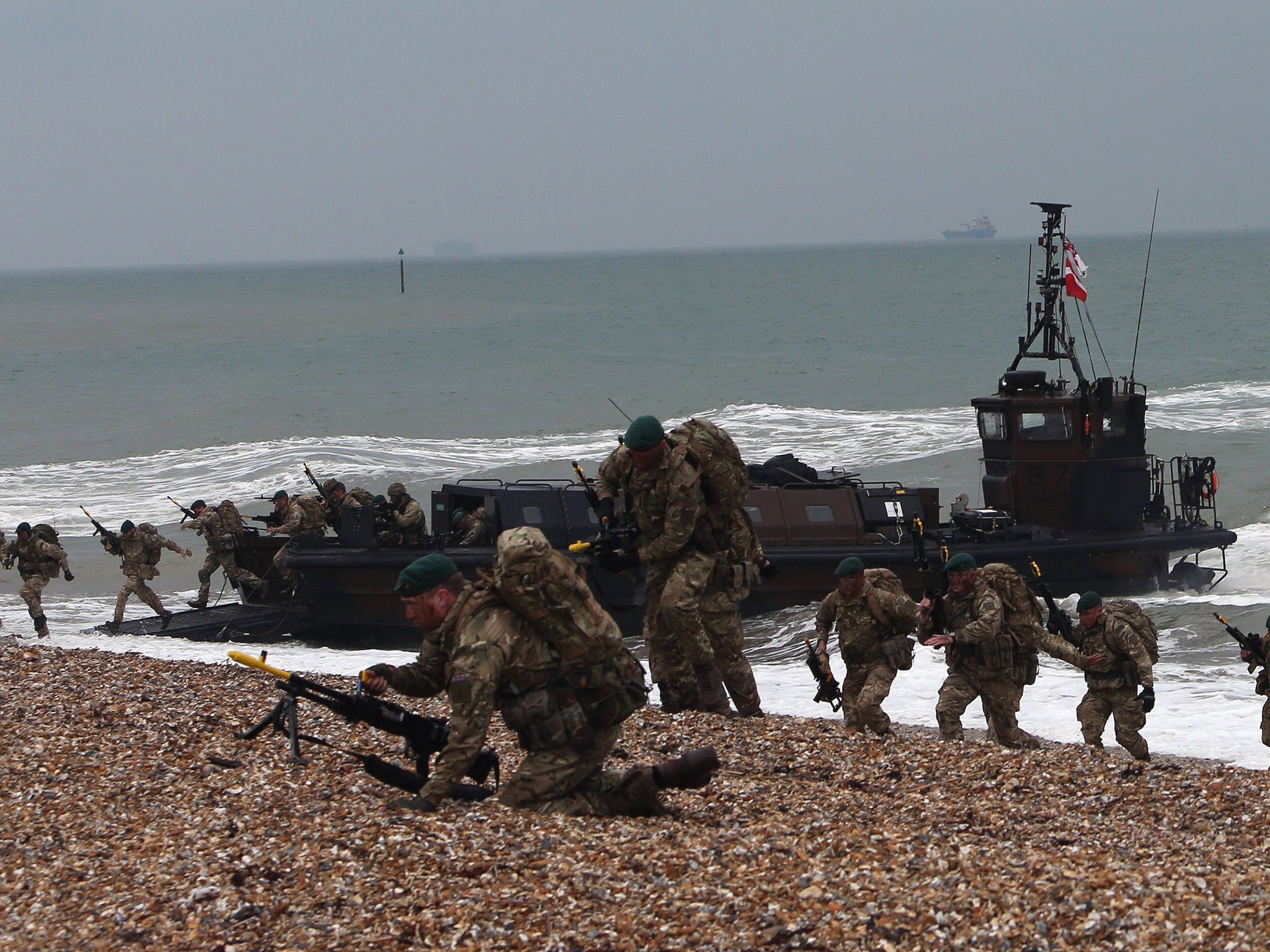UK military cuts shelved until after new defence spending review
Theresa May also announced a new unit to counter fake news from state actors amid concern over Russia

Your support helps us to tell the story
From reproductive rights to climate change to Big Tech, The Independent is on the ground when the story is developing. Whether it's investigating the financials of Elon Musk's pro-Trump PAC or producing our latest documentary, 'The A Word', which shines a light on the American women fighting for reproductive rights, we know how important it is to parse out the facts from the messaging.
At such a critical moment in US history, we need reporters on the ground. Your donation allows us to keep sending journalists to speak to both sides of the story.
The Independent is trusted by Americans across the entire political spectrum. And unlike many other quality news outlets, we choose not to lock Americans out of our reporting and analysis with paywalls. We believe quality journalism should be available to everyone, paid for by those who can afford it.
Your support makes all the difference.Cuts to the UK’s military forces have been put on ice after the National Security Council ordered a review of defence spending.
Downing Street announced current spending plans, which military chiefs had warned could see the armed forces badly diminished, would be deferred until the new review was complete.
The council (NSC) also ordered the creation of a new National Security Communications Unit to combat fake news, with Theresa May having warned that Russia has interfered in other countries elections.
After weeks in which it was claimed that current plans would see cuts to the Royal Marines, regular troop numbers and amphibious assault ships, Theresa May’s spokesman confirmed the National Security and Capability Review (NSCR) would be published in late spring.
He said: “As a result of the high-level findings of the review, the NSC has also commissioned a further new programme of work to modernise defence.
“It will use the Strategic Defence and Security Review 2015 and Joint Force 2025 as a starting point and build on the detailed work to date.”
Asked if this amounted to a full defence review, with one only having just been carried out in 2015, the spokesman said: “I think the defence element of the NSCR has shown further work is needed to modernise defence to deliver better military capability and value for money in a sustainable and affordable way in accordance with National Security objectives.”
The spokesman refused to comment on the specifics of rumoured cuts but said the defence budget was increasing by more than inflation each year.
It follows an ongoing struggle between Cabinet ministers Philip Hammond and Gavin Williamson, with the Defence Secretary refusing to accept the Chancellor’s spending plans.
Chief of General Staff Sir Nick Carter also warned in a speech recently that the UK risked falling behind other military powers if it did not invest in new technologies.
Shadow Defence Secretary Nia Griffith said the decision to hold a separate defence review should not be used “to kick the difficult decisions facing the defence budget into the long grass”.
She went on: “Just this week we have had serious warnings from the Head of the Army about the threats that this country faces and there has been growing concern that the Government’s deep cuts to our nation’s defences have left us ill-equipped to respond to those threats.
“The true test of any defence review will be whether it delivers real investment in our nation’s defences and the resources that our Armed Forces so badly need.”
The new counter-propaganda unit will be tasked with combating fake news and interference from foreign states and “others”, likely to be alluding to terror groups like Islamic State.
Ms May’s spokesman said: “We are living in an era of fake news and competing narratives. The Government will respond with more and better use of national security communications to tackle these interconnected challenges.
“To do this we will build on existing capabilities by creating a dedicated National Security Communications Unit. This will be tasked with tackling disinformation by state actors and others.
“It will more systematically deter our adversaries and help us deliver on national security priorities.”
In a speech at the Lord Mayor’s banquet in the City of London last year, Ms May specifically accused Russia of attempting to “weaponise information”.
She said: “[Russia has been] deploying its state-run media organisations to plant fake stories and photoshopped images in an attempt to sow discord in the West and undermine our institutions.”
Join our commenting forum
Join thought-provoking conversations, follow other Independent readers and see their replies
Comments